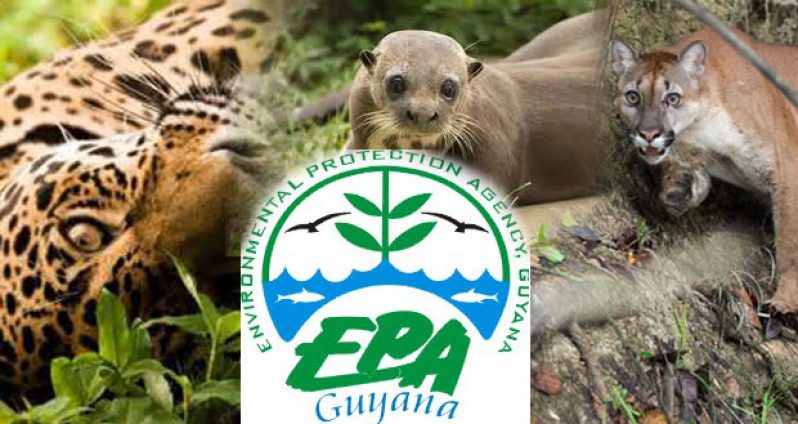Think for a moment about what the landscape surrounding the Linden-Soesdyke Highway may look like in the next 100 years. Do you see high-rise buildings, luxurious housing schemes, perhaps world class stadiums, a subway system and streets jammed with yellow taxis? Now consider the abundance of wildlife which finds their homes in the creeks, sandy hills and vast evergreen forest. The importance of Wildlife cannot be underestimated. As such, conservation and management should be practiced tandem in order to strike a balance between ecological and socio-economic benefits.
Do you see high-rise buildings, luxurious housing schemes, perhaps world class stadiums, a subway system and streets jammed with yellow taxis? Now consider the abundance of wildlife which finds their homes in the creeks, sandy hills and vast evergreen forest. The importance of Wildlife cannot be underestimated. As such, conservation and management should be practiced tandem in order to strike a balance between ecological and socio-economic benefits.
In 1994, the United Nations Convention on Biological Diversity (UNCBD) was implemented following negotiations at the 1992 Rio Earth Summit. Guyana is currently among the 194 parties to this convention which provides a global legal framework for action on biodiversity. As part of this action, parties develop National Biodiversity Strategy and Action Plans (NBSAPs). The EPA, as the National Focal Point for this Convention, has coordinated the development and implementation of the Guyana’s NBSAPs with the third being developed in May 2015. The NBSAP (2012-2020) sets out the vision, roles, duties and obligations of the state and its citizens to protect, conserve, use sustainably and share equitably the benefits arising from biodiversity.
The various elements of nature such as air, water, soil, plants, animals, etc., have all been tapped in some way or another to fuel the ‘needs’ of humanity. Industry, hunting, cultivation, wildlife-based tourism and other economic activities continue to be expanded and diversified, but certainly at a cost. Overexploitation of these resources, particularly wildlife results in imbalance to the natural ecosystems and in turn can result in unsustainable development. Wildlife has an intrinsic value and contributes to the ecological, genetic, social, economic, scientific, educational, cultural, recreational and aesthetic aspects of sustainable development and human well-being. These are some of the reasons why it is imperative that countries protect their environments as a social responsibility to all humanity. Let’s join with the rest of the world on March 3, 2016, to help protect our wildlife and secure our future.
Share your ideas and questions by sending letters to: “Our Earth, Our Environment”, C/O EIT Division, Environmental Protection Agency, Ganges Street, Sophia, GEORGETOWN, or email us at: eit.epaguyana@gmail.com or you can contact the Agency on 225-5467-9. Also check out our facebook page, Environmental Protection Agency-Guyana.




.png)









